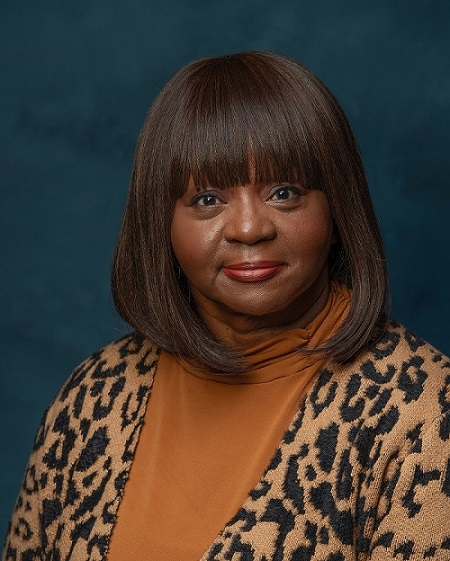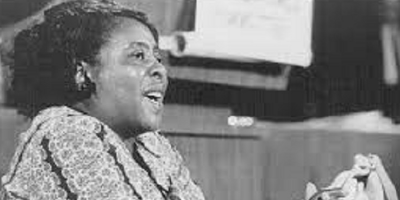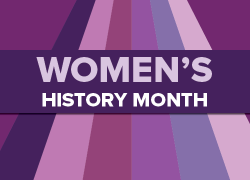With diverse experiences throughout my career, a comm on thread runs through all: advancing opportunities for people who, due to systemic barriers, have not had equitable access to pursue and achieve their employment aspirations. Today, I do this as executive director of the American Association for Access, Equity and Diversity, a national membership organization of professionals who lead, direct and manage affirmative action, equal opportunity, diversity and human resource programs to create a more equitable, inclusive American workforce.
on thread runs through all: advancing opportunities for people who, due to systemic barriers, have not had equitable access to pursue and achieve their employment aspirations. Today, I do this as executive director of the American Association for Access, Equity and Diversity, a national membership organization of professionals who lead, direct and manage affirmative action, equal opportunity, diversity and human resource programs to create a more equitable, inclusive American workforce.
Disability is a key component of this vision, and that is why AAAED formed an alliance with the Department of Labor’s Office of Disability Employment Policy last summer. Since then, I’ve thought about how disability, in addition to being a facet of diversity, intersects with all other diversity factors.
As a Black American woman, I’m inspired by the experiences of Black American women with disabilities who advanced freedom, democracy and human rights — the fundamental building blocks of equity and inclusion. While there are many examples, this Women’s History Month, I share more about two in particular: Harriet Tubman and Fannie Lou Hamer.
Harriet Tubman (ca. 1820 – 1913)

As noted in a Ms. magazine article published in February, Harriet Tubman (born Araminta Ross) later became known as “Moses” for her courageous service as a “conductor” on the Underground Railroad. According to legend, 12-year-old Tubman became disabled when, while shopping in a general store, she saw an enslaved teen trying to escape. When his enslaver tried to stop the teen, he threw a two-pound weight and hit her instead, causing her severe headaches and seizures for the rest of her life.
In 1849, Tubman and her brothers escaped north via the Underground Railroad, created by a coalition of abolitionists. She returned to the South several times to free 70 enslaved people and never lost a “passenger.” During the Civil War, Tubman served as a Union agent and later supported the work of John Brown. She also participated in the women’s suffrage movement with Elizabeth Cady Stanton and Susan B. Anthony. Through all this Tubman experienced severe pain, and in 1898 underwent brain surgery, without anesthesia, to ease it.
Tubman led the way, on the railroad, and as a liberator, patriot, suffragist and American hero.
Fannie Lou Hamer (1917-1977)

Four years after Tubman’s death, Fannie Lou Hamer was born to sharecroppers in Mississippi. An article in HUMANITIES: The Magazine of the National Endowment for the Humanities, said she was the youngest of 20 children and had little formal education. Hamer had polio as a child and became physically disabled due to a severe beating in a Mississippi jail after an arrest for attempting to register black voters. While undergoing surgery for a uterine tumor in 1961, she received a hysterectomy without her consent.
Hamer went on to serve as co-founder of the Mississippi Democratic Freedom Party. In 1964, she gained national prominence when MDFP sought seats at the Democratic Convention and was refused. In response, Hamer said: “Is this America, the land of the free and the home of the brave, where we have to sleep with our telephones off of the hook because our lives be threatened daily because we want to live as decent human beings, in America?” The Democratic Party decided to seat the original delegates but offered the MDFP two at-large seats. Hamer refused. At the 1972 Democratic Convention, an integrated delegation from Mississippi was finally seated.
Later, Hamer ran for a seat in the Mississippi House of Delegates, co-founded the National Women’s Political Caucus and the Freedom Farm Cooperative. She died at age 59 from cancer and heart disease, but her legacy, like Tubman’s, lives on. She is remembered for her courageous activism and for plaintively saying, during a speech at the Williams Institutional CME Church in Harlem, New York, in 1964, “I am sick and tired of being sick and tired, and we want a change.”
Indeed, it’s because of the actions of heroines like Tubman and Hamer that I’ve had the privilege to dedicate my own career to promoting change. During Women’s History Month, I honor their contributions. I also recommit to ensuring their legacies endure, every month of every year.
Shirley J. Wilcher, M.A., J.D., L.L.D, is executive director of the American Association for Access, Equity and Diversity. From 1994-2001, she led the department’s Office of Federal Contract Compliance Programs.

 U.S. Department of Labor Blog
U.S. Department of Labor Blog
